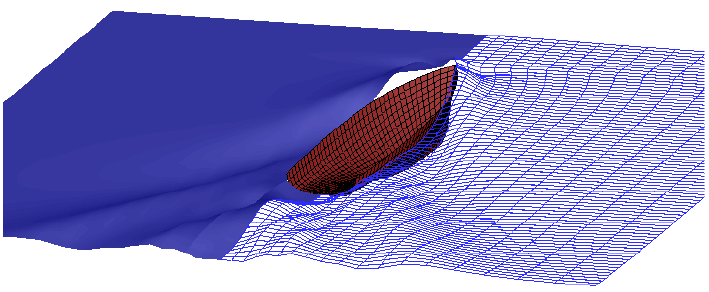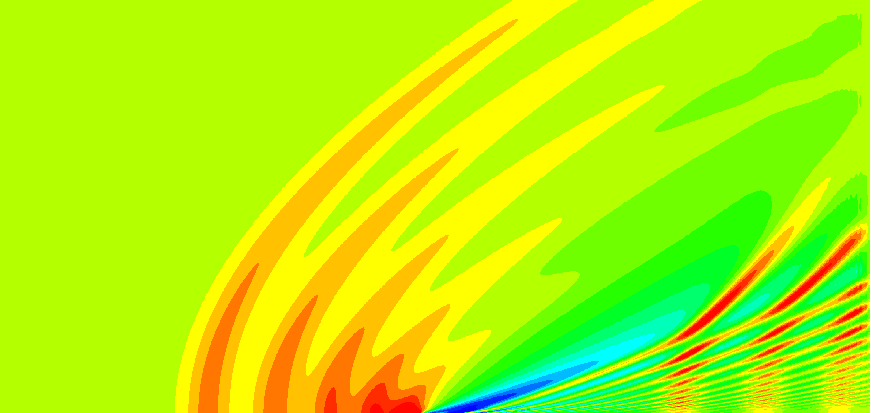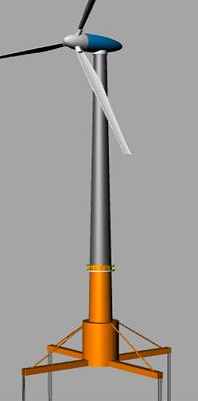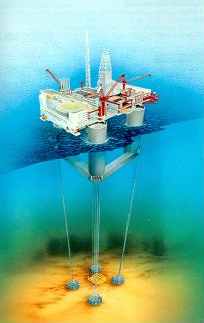Laboratory for Ship and Platform Flows
Department of
Mechanical Engineering
Ships have been engaged in
maritime trade, national defense and leisure for millennia. Their hydrodynamic
performance and design is an age-old problem in naval architecture, yet it
still presents numerous challenges to the marine hydrodynamics community. Research at the LSPF focuses on the modeling
of free surface flows past conventional and high-speed vessels and the
estimation of their resistance and seakeeping in deep and shallow waters.
Recent studies have concentrated on the coupling of hydrodynamic simulations
with modern optimal control theory for the minimization of the motions and the
fuel efficient navigation of high-performance and conventional vessels in a
stochastic environment. These studies encompass the development of analytical
and computational techniques, including the use of the state-of-the-art SWAN (ShipWaveANalysis) Software Suite.
The exploration and development
of large offshore hydrocarbon reservoirs in deep waters is a key activity of
the oil industry, presenting a host of technological challenges. Research at
the LSPF has concentrated upon the study of the hydrodynamics and dynamics of
novel deep-water offshore platform technologies. This includes studies of the
surface wave hydrodynamics of various concepts, the nonlinear statics and
dynamics of mooring, riser and tether systems in water depths up to 10,000 feet
and the response simulation of platform concepts in hostile weather
environments. Recent studies have concentrated on the development of floater
concepts for the support of wind turbines to be deployed in large scale
offshore wind farms in shallow and deep waters. These studies encompass the
development of analytical and computational techniques, including the use of
the state-of-the-art SML (Swim-Motion-Lines) and SWAN Software Suites.
Books
Readings in Marine Hydrodynamics. Volume published in
Honor of Professor J. Nicholas Newman. Paul D. Sclavounos,
Editor.





